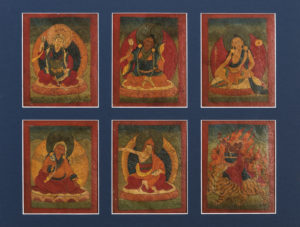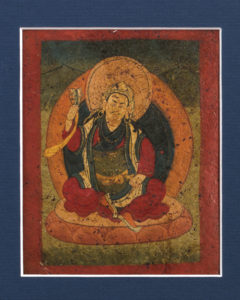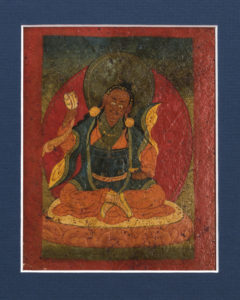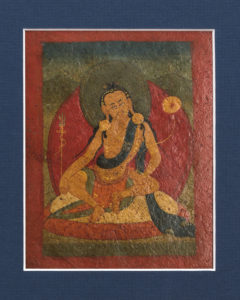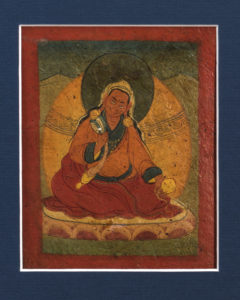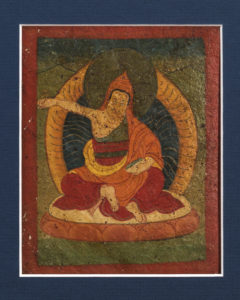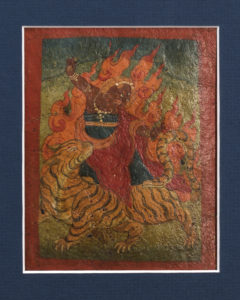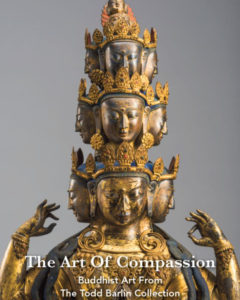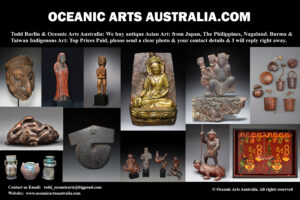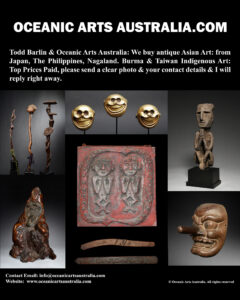Six Superb Tibetan Buddhist Tsakli Paintings from the 18th Century
| Collection No. | TB-2684 |
|---|---|
| Size | 14 cm x 11cm each painting |
A Set of Six Superb Large Size Tibetan Tsakli Paintings depicting six manifestations of the Buddhist Saint Padmasambhava
This set of six beautiful old Tibetan Tsakli paintings depicts six manifestations of the Buddhist Saint Padmasambhava, In Tibet, Padmasambhava is generally referred to as Guru Rinpoche, which means “precious master.” Guru Rinpoche is a totally enlightened being, a fully awakened one, a Buddha. He did not become enlightened gradually, or start practicing the teachings of Buddha Shakyamuni and eventually achieve enlightenment. Guru Rinpoche incarnated as a fully enlightened being. Through his form, primordial wisdom manifests in the world to benefit all sentient beings.
These beautiful small artworks are very finely painted with polychrome pigments on thick handmade paper. The back of each painting has Tibetan script describing the deity, they date from the 18th Century and are in very good condition. They are mounted in a double row, three on top and three on the bottom with the museum-quality archival cards in dark blue, they are ready to put into a frame of your choice.
Buddhist teaching is not something learned from books, although they certainly play a part in reinforcing what one has already learned. The prime way of learning in Tibetan & Mongolian Buddhism is through one’s master’s words. A common sentiment in those lands is that, without a fully qualified master to transmit them, the Buddha’s teachings may well never have existed.
In learning the many complex rituals involving sometimes hundreds of deity forms, their names, iconography, secret syllables, and so on, a student must have a teacher who almost always transmits this information orally. As an aid to memory, especially where complex deities are to be learned, these small cards called Tsakli representing these myriad forms are shown by the master to the teacher, and the details, often found on the back of each card, are read aloud by the teacher with the intention that the student retains the details in their memory.
When a deity form has been fixed in the mind and one has embarked on the path of Buddhist tantra, at a certain stage one is expected to select a tutelary deity; that is, a deity that is core to one’s heart practice. This deity then becomes the focus of one being, and it is not unusual for both monks and laypeople to spend a great deal of money commissioning a large painting of such deities. These scroll paintings are known as thangkas ”
Provenance: The Todd Barlin Collection of Tibetan and Mongolian Buddhist Art & Asian Art
Exhibited: The Art of Compassion: Buddhist Art from The Todd Barlin Collection. Sydney Australia 2018. Catalogue By Dr David Templeman,
INQUIRE HERE
To see many more rare items and the finest masterpieces, please make an appointment with us to visit the gallery.
For all inquiries, please contact us.

